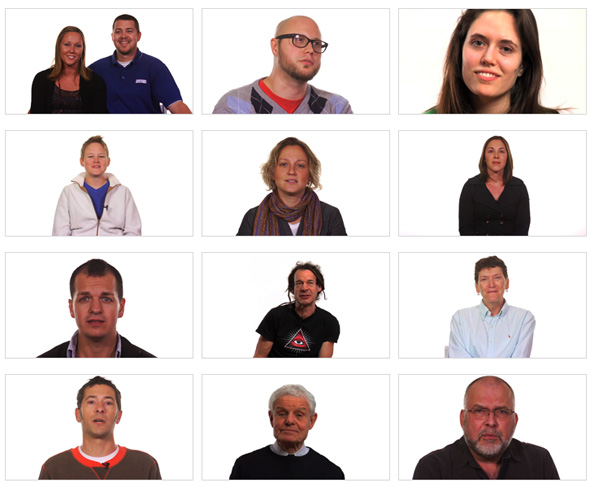
In 2004, at a fundraising dinner for the antiracism group Facing History And Ourselves, the filmmaking team of Whitney Dow and Marco Williams were discussing their documentary Two Towns of Jasper, about the 1998 murder of a black man, James Byrd Jr., by three white men, in Jasper, TX. An 11-year-old girl asked Dow, who is white, what he had learned about his racial identity from making films with Williams, who is black. “I had this epiphany,” Dow says. “My first thought was, ‘I don’t have a racial identity. I’m white. Then it was like, ‘Oh my god, I have the most powerful racial identity in the world.’ Our whiteness is passive. Race in America is measured against whiteness.”
Dow became interested in how to create what he calls a “non-oppositional piece about whiteness.” Thus was born The Whiteness Project, a cross-
platform examination of how white people experience their race and ethnicity in the US.
He started interviewing white people, asking simple questions: What are the benefits of being white? Do you ever take advantage of the fact that you are white? Etc. Dow wasn’t sure where he was headed with it, but knew he didn’t want to just make another documentary. The subject matter demanded a more generous and sophisticated frame than a linear documentary could provide.
In January, The Whiteness Project was among the winners of the POV Hackathon, which pairs filmmakers with developers to produce a transmedia prototype of their project. Dow is using the prototype to try to raise money.
He plans to take a mobile studio across the country this summer, compiling a database of a thousand interviews with people from a broad range of socioeconomic and geographic backgrounds. He will edit these into a “long conversation,” organized around the themes that emerge: guilt, obligation, fear, benefits, etc. The result, he hopes, will be the basis for a website, a photo book, and an installation for galleries, including a traveling kiosk where people can see the project.
Dow’s goals are both modest and grand. “I want to create something that will give white people the chance to have the realization I had,” he says. “It has made my life more complex and interesting.” Beyond that, Dow says he hopes to “add an additional strand to the national conversation about race, in which whiteness is an active component, and race is not ‘the other.’ ”
The Editors are the staffers of the Columbia Journalism Review.
